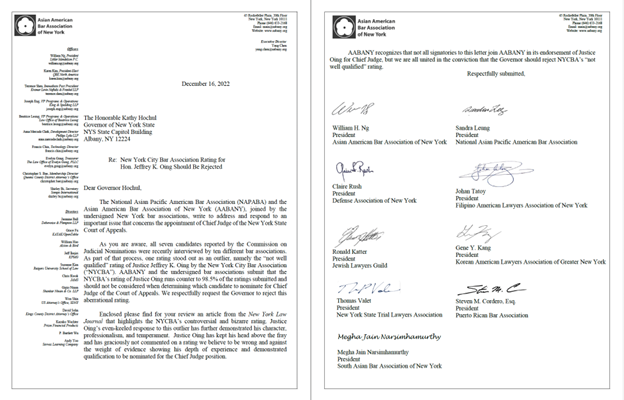On December 15, the New York Law Journal published an op-ed titled, “Jeffrey K. Oing: The Chief Judge All New Yorkers Need Now,” written by President William Ng. The op-ed states in relevant part:
A New Yorker with over thirty years of legal and administrative experience, the majority of which has been in public service, Justice Oing stands out as the candidate with the most experience in all three branches of government — judicial, legislative, and executive.
This breadth of experience makes Oing the ideal judge to help make government work better for all New Yorkers. Indeed, before his illustrious career on the bench, Oing served as Deputy General Counsel to the New York City Council and worked on issues such as re-districting under the Voting Rights Act.
Earlier in his career, Oing provided legal and policy advice to the New Jersey State Governor and cabinet members on various pending legislation concerning constitutional law, civil justice, consumer affairs and employee relations.
If Oing is nominated, Hochul will have full confidence that she is selecting an experienced judge who understands well how government works and who has dedicated his professional career to public service and delivering justice.
The op-ed concludes with the statement that New York has never had a judge of Asian American and Pacific Islander descent sitting on its highest court, and Governor Hochul would not only be appointing a highly qualified jurist to serve as Chief Judge, she would also be making history and adding much needed diversity to the state’s highest court.
To read the full op-ed, click here (subscription required).
We expect Gov. Hochul to announce her decision by Dec. 23, and AABANY continues to urge the Governor to nominate Justice Oing to be Chief Judge of the New York Court of Appeals.


